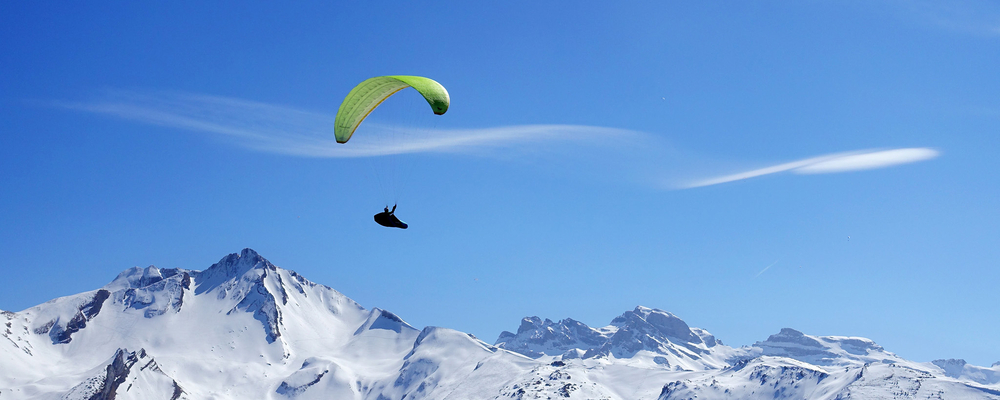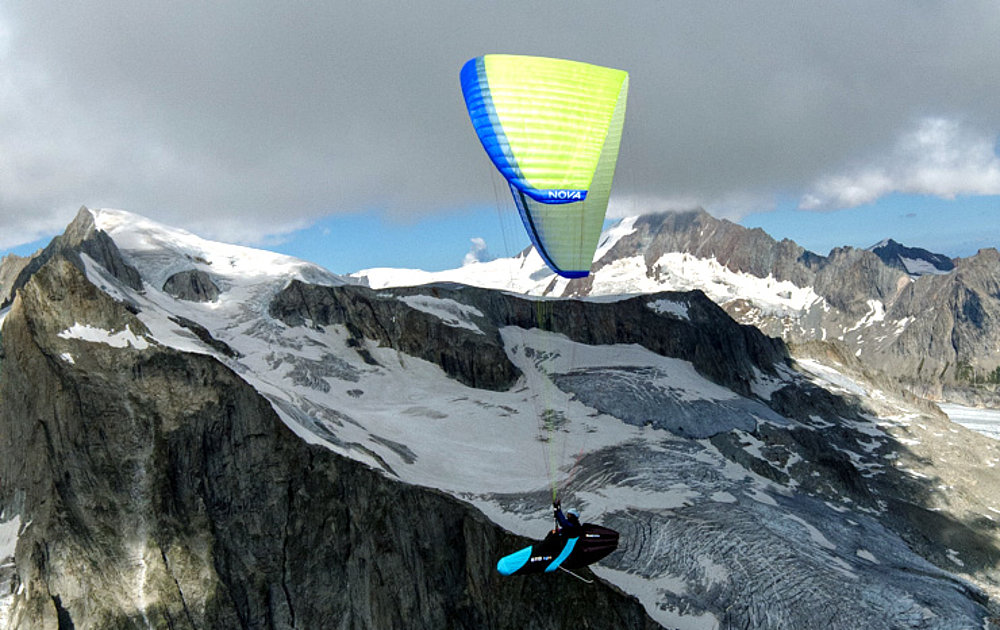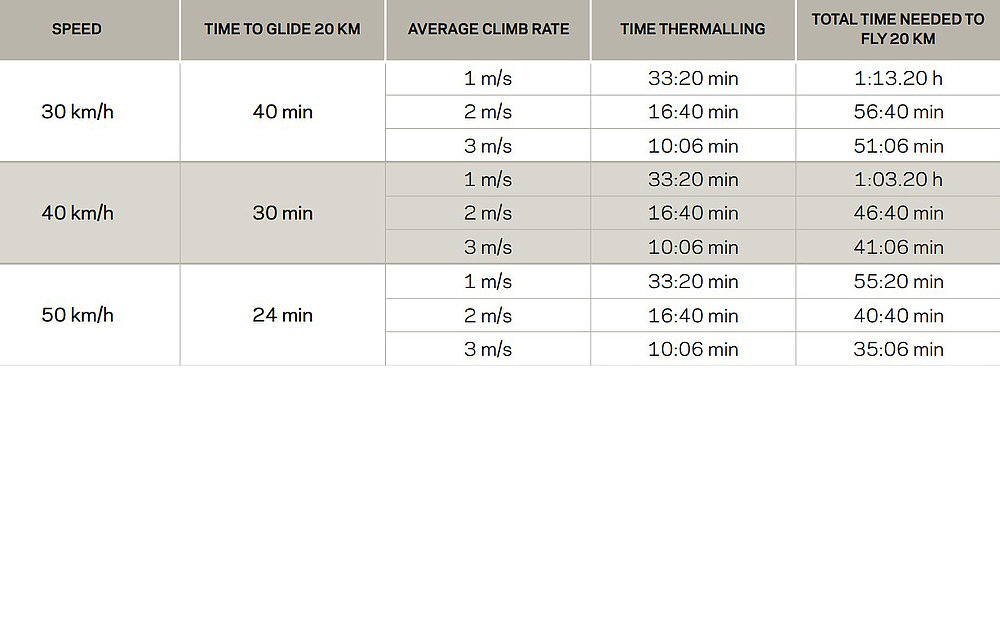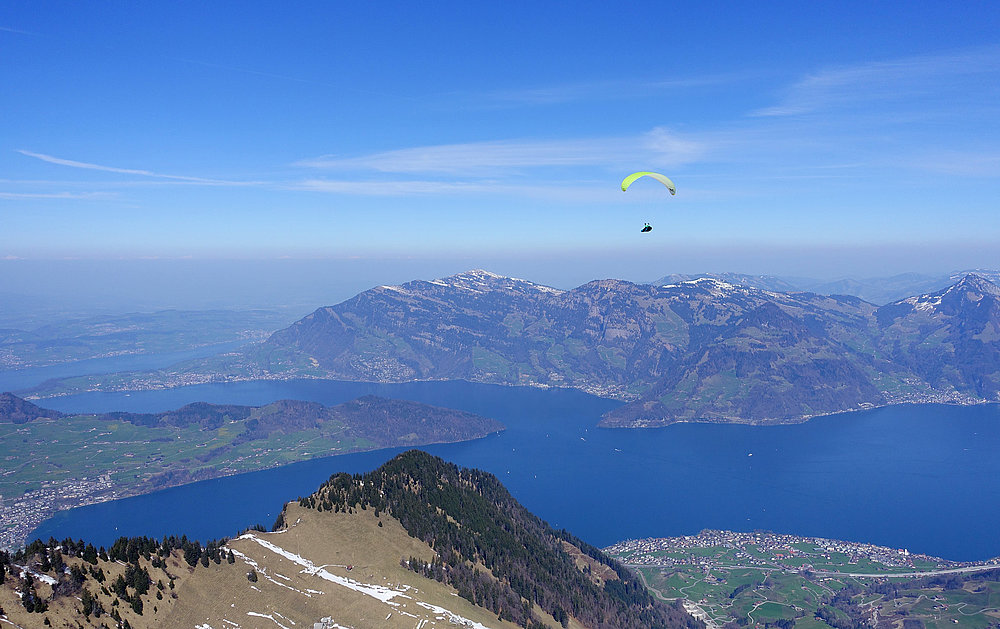
30 tips for successful cross-country flying
#23: Learn to core effectively

Anyone can fly straight (at least to some extent), but it is much more difficult and therefore extremely important to center in thermals correctly. Master pilot Chrigel Maurer has stated: “When you are in a thermal, you spend half the time flying in the wrong direction!” Therefore you should try to minimise the number of turns in a thermal and the amount of time you are climbing in one.

The importance of effective turning can be seen in this mathematical example: if your wing has a glide angle of 1:10, we can calculate how much time you need for a glide and to thermal back up to the starting altitude and therefore how long it takes to fly 20 km. Isn’t it amazing how much time you gain if you can climb faster? If you gain altitude faster, you get a better average speed and fly further.

How can you improve your climb rate?
- Practise at your local site. Climb, spiral down, climb again.
- Always try to be the highest pilot at your local site. This increases your awareness of the best places to climb.
- Observe your surroundings. Are other pilots climbing faster in another thermal? Are birds climbing nearby? They generally have the best idea where to get high. When scratching on the ridge, observe the leaves. Are the trees moving? Can you see the lighter underside of the tree leaves?
- Observe and analyse the thermal you are currently in: is it tight or wide? Weak or strong? Smooth or rough? Straight up or drifting? And if it is drifting, how strongly and at which altitude?